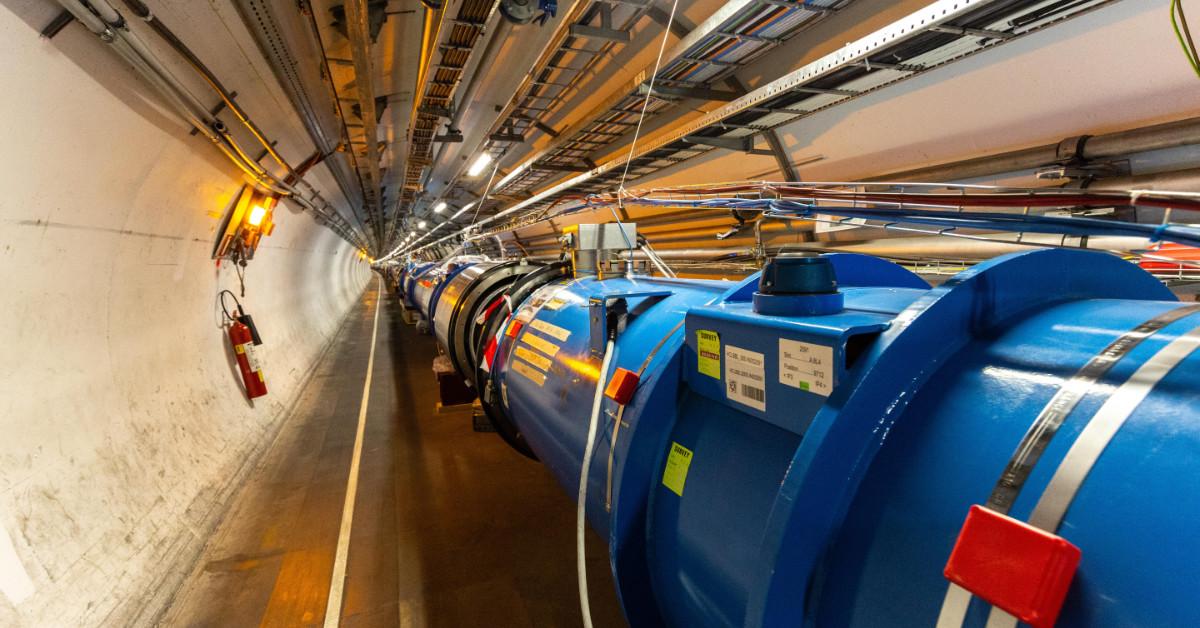Higgs Boson Discovery Was 10 Years Ago, CERN Is Taking on Dark Matter
What has CERN discovered? Read about the European research organization’s achievements as it starts up its Large Hadron Collider for a third run.
July 5 2022, Published 12:19 p.m. ET

Antonio Gonzalez-Arroyo from the Universidad Autonoma de Madrid makes notes on a CERN blackboard on April 19, 2016, in Geneva, Switzerland
The list of insights CERN has discovered with its Large Hadron Collider may soon grow longer. The organization, officially known as the European Organization for Nuclear Research, is firing up the world’s largest and most powerful particle accelerator for a third run on Tuesday, July 5, almost exactly 10 years after scientists at CERN announced the discovery of the Higgs boson particle.
With the third run of the 17-mile collider, CERN scientists are hoping to understand more about the universe, including dark matter and dark energy, which together make up the vast majority of the universe. “There has to be more out there because we can’t explain so many of the things that are around us,” Dr. Sarah Demers, a physics professor at Yale University, tells NPR. “There’s something really big missing, and by really big, we’re talking about 96 percent of the universe really big.”
CERN researchers previously discovered the W and Z bosons and the Higgs boson.
According to CERN’s website, the organization primarily researches fundamental particle physics, studying how four distinct forces govern the particles that make up all visible matter in the universe. In 1983, long before the Large Hadron Collider was constructed, CERN researchers discovered the W and Z bosons, which are carriers of weak force, one of the four forces. In fact, CERN’s Carlo Rubbia and Simon van der Meer won a 1984 Nobel Prize for that discovery.

A part of the Large Hadron Collider tunnel in Meyrin, Switzerland, as seen on September 14, 2019
In 2012, researchers crashed particles together in the Large Hadron Collider at speeds near the speed of light and discovered the Higgs boson, a particle associated with the Higgs field, which gives mass to elementary particles.
The Higgs field is believed to have formed a tenth of a billionth of a second after the Big Bang and is believed to be responsible for stars, planets, and life in the universe, NPR reports.
During the collider’s second run in 2018, CERN researchers learned more about how the Higgs boson decays, but more research remains to be done. “This is a particle that has answered some questions for us and given many others,” Demers says.
The Large Hadron Collider’s third run will look for answers about dark matter.
The third run of the Large Hadron Collider — located near Geneva, Switzerland — will continue for the next four years, followed by the fourth run in 2030, according to CERN’s schedule. The third run will focus on the question of dark matter, the invisible matter that holds galaxies and galaxy clusters together, according to Space.com.
One of the questions CERN is researching is whether the Higgs boson can interact with dark matter and shed light on its nature. “Finding the answers to these and other intriguing questions will not only further our understanding of the universe at the smallest scales but may also help unlock some of the biggest mysteries of the universe as a whole, such as how it came to be the way it is and what its ultimate fate might be,” CERN said in a news release.
